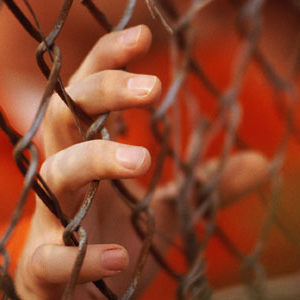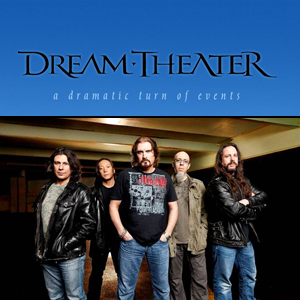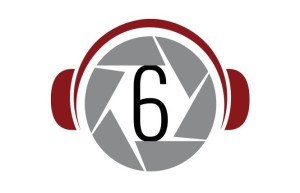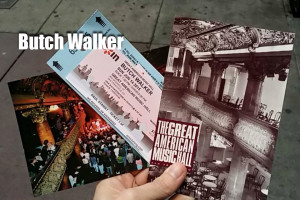A Call to Respond: A Conversation with Faceless International
15 min read
[Ed. Note: Today’s conversation is with Sarah Freeman who, along with Stephen Christian of Anberlin, is a co-founder of Faceless International. They exist for one reason – to get you involved in the fight against human trafficking. Whether on a local, state, national or global level, Faceless International wants to empower you to make a difference. Be the change.]
 Recently, two survivors from human trafficking placed letters in the Washington Post and the San Francisco Chronicle pleading with Craigslist.org to remove their adult services section in order combat the growing sex trade in America. Before these letters, if there was a misconception when it came to human trafficking, it might have been that it was an issue, but not an issue that we need to worry about in this country. These letters were evidence that this simply isn’t true. Recently Craigslist did respond to the growing pressure by advocacy groups as well as several state lawsuits by placing a “censored” sign on the site where the adult services section used to be. Whether this was done in reluctance or out of concern remains to be seen. But this story serves as proof of the depth and scope of the slave trade that is very real and continues to be an issue in the world. Here are some staggering and mind blowing statistics that you probably weren’t aware of:
Recently, two survivors from human trafficking placed letters in the Washington Post and the San Francisco Chronicle pleading with Craigslist.org to remove their adult services section in order combat the growing sex trade in America. Before these letters, if there was a misconception when it came to human trafficking, it might have been that it was an issue, but not an issue that we need to worry about in this country. These letters were evidence that this simply isn’t true. Recently Craigslist did respond to the growing pressure by advocacy groups as well as several state lawsuits by placing a “censored” sign on the site where the adult services section used to be. Whether this was done in reluctance or out of concern remains to be seen. But this story serves as proof of the depth and scope of the slave trade that is very real and continues to be an issue in the world. Here are some staggering and mind blowing statistics that you probably weren’t aware of:
- There is an estimated 27 million slaves worldwide.
- 800,000 people are trafficked across borders each year.
- 1 million children will be exploited in the sex trade each year.
- 80% of victims are women and girls
- 70% of female victims are forced into the commercial sex industry
- 30% of the remaining female victims are placed into situations of forced labor
Human Trafficking affects 161 countries and is a 32 billion dollar a year industry. It’s a big issue. And it’s probably one of the most ignored issues in the world. I had the opportunity to speak with Stephen Christian and Sarah Freeman of Faceless International to talk about this problem. You can read Stephen’s interview here where he just scraped the surface about his organization he helped start. In this article we focus our attention on Sarah Freeman, who gives us a much more in depth education into the world of human trafficking and how to raise awareness in a world that has turned a blind eye.
Sarah Freeman: How are you doing today?
C6M: Good, good.
Sarah Freeman: Good, good. So, I don’t know much about your magazine actually. Can you tell me just a little bit about it?
C6M: Sure, we’re an online magazine. It caters mostly to men’s interest, but it’s more like a culture magazine if that makes sense. So, we go and cover music and we cover just trends, politics, stuff like that. That’s mostly what we’re about.
Sarah Freeman: Yeah. Well, okay, well I’ll have to definitely look at it.
C6M: So, I just — I talked to Stephen and I’d actually never heard of this organization and I discovered that he was a co-founder.
Sarah Freeman: He is, he is.
C6M: So, what exactly is it and — why don’t you just start with how you guys founded it?
Sarah Freeman: Yes. Faceless is a social justice awareness campaign, and we focus specifically on human trafficking in all forms, whether it be fair trade issues, whether it be the sex trade or whether it be labor issues, any time when somebody is being taken advantage of, it’s considered basically human trafficking in that world. So, we focus primarily on that and we have a couple of different programs that we focus on. My job in the company is to — I co-founded it with Stephen, and my job specifically now is to educate bands like Stephen and the other guys that he travels with and some other fans that talked about us, and how to talk about the cause and how to bring awareness of it in interviews and how to get their labels involved. My background is in publicity, so anything involving publicity or interviews like this or anything involved in that whole music world kind of falls under what I do, and so I do a lot of training, and talk about the cause, but the bands especially. Then I do the same thing with students. We focus very, very heavily on student involvement as well, and we believe that this — and that human trafficking is going to end. It’s going to end by one of the next generations completely changing their lifestyle and putting their foot down and saying, “This is not okay.” We do a lot of student involvement programs like street teams where we have kind of activities planned every month during the school year that we use our representatives around the country to plan, so that there’s always something going on through Faceless that’s in different parts of the country that people can get involved in. Then we kind of use the bands with that as well, and we hook up the bands with the street teamers and if the band is in, say, Nashville, where we live. Then we have an awesome street team representative here in Nashville too. Then we’ll get them working together at awareness events too once in a while. So, we’re trying to merge the world as much as possible, so it’s not a — us, them or only the bands can do it or only the kids can do it, which are really hard to kind of merge two roles together. So, that the students can see that all these band guys are just like them, they’re really no different.
C6M: Right. Well, do you find that people are surprised that there’s still, I guess, a slave trade per say even in our own country?
Sarah Freeman: Yes. Actually, I had a conversation about this yesterday. One of my dearest friends is a police officer and he’s actually getting trained for the Vice Unit, which is prostitution and gangs and drugs. And I asked him, “Is there any training at all on human trafficking?”, and he said there was absolutely nothing. Everything he knows has just been what I have told him, and it’s just — it constantly baffles me, the amount of churches that don’t know about it, the amount of police officers and the whole world, lawyers, refugee agencies, all these different people who are so close to these people, who have no idea. Even like since in the past six months, there have been 10 cases alone found here in Nashville, and not one of them has made it on the local news. I mean once in a while I hear about it on Dateline NBC, but a company called IJM that just does a great, great — they’ve worked all over the world, but you will never hear about — very seldom we hear about it on local news stations, and it’s really sad.
C6M: Yeah, well, one of the surprising things that I discovered after talking to Stephen was that I went out and I looked and there were a couple of letters that were put out in a couple of the different newspapers that was talking about the human trafficking with prostitution and a couple of girls had put out something in the newspaper basically pleading with Craigslist to do something about that…is this a common thing? I mean do you guys get to hear about this before it gets to that point, before there’s a desperate cry through the media?
Sarah Freeman: Well, I am personally — we all have our kind of little gifts within Faceless. We have an awesome director that takes care of all the business stuff and all the meeting with business adults that I just personally don’t enjoy. Stephen I mean obviously great at drawing awareness to the cause and to Faceless, and to several other causes as well. I personally — that is one of my biggest things, is doing a lot of research actually, so when I do interviews like this and I talk to people that can actually know what I’m talking about a lot. I’m always reading books and always reading papers and research papers and trying to always talk to people about the cause as well. So, personally one of my goals, because I’ve been doing so much research especially lately in — and with my friend being in vice detectives unit, trying really hard to get the law enforcement officials involved a lot more, and getting them aware of what’s going on, so that when they see it, they know who they can call. I’m not exactly sure how things are run outside of Nashville, because this is where I live, but I do know that local law enforcement agencies in general around the country know very little, and that’s kind of one of my big pushes, is just trying to at least change that in Nashville, at least. Then also the whole pornography side of things too, and how pornography leads into human trafficking. I kind of call it the gateway drug, because it’s kind of the — you look at all of these magazines and all of these videos and then you want more, and they gradually you move to prostitution. While some of the prostitutes supposedly choose — and I say that very loosely — choose to be in that world, many of them are lied to. So, there’s kind of that huge grey area, and that’s another one of my big pushes, is trying to reach the girls through that too. We’re trying. It’s really hard to find — that’s one of the biggest issues, it’s finding the victims, and you only hear about them when they’re found, which is very seldom, and that’s because law enforcement, they don’t know what to look for.
C6M: Right, well, I was reading the — one of the reasons why that they don’t want to be found is that a lot of times their own families are the ones that kind of sold them into it, but then the people that are keeping them in the business of prostitution or whatever else, will use that as leverage and say, “If you leave, there’s your grandmother,” or whoever else was — someone that they cared about, and said that “You haven’t thought this all the way through. If you leave, they get hurt.”
Sarah Freeman: Yeah, exactly, exactly, and often times the girls here in the States don’t speak English and they don’t exactly — they don’t even know where they are some of the times. I remember one of the first stories I heard about was a girl who actually died right before she met the non-profit that was going to help her. She was at the last checkpoint. She had gone through a series of checkpoints. She was escaping and they had held her in Atlanta, and she had gotten to the very last checkpoint and they tracked her down and killed her. But when they were talking to her through the stages, she told them that she thought that she was in Detroit, and she was really in Atlanta. So the majority of time, because they’re brought in from other countries and because they’ve been getting out so many planes and they don’t speak the language. And if they do, they probably most definitely don’t read the language. They have no idea where they are and so they don’t really know what to do if they actually do escape.
C6M: Well, let’s talk about some of the organizations that you guys partner with. I noticed on your website that there’s a few different organizations that you’ve linked up with, that are linked to this whole cause.
Sarah Freeman: Yeah. To Write Love on Her Arms is one of our favorites. I know that’s super huge right now, which we love, but we actually got started around the same time as they did, and Jamie, the founder of To Write Love — and actually both of his sisters had been on — well, the younger sister has gone to India with us and his older sister is going on a trip with us later on this year. So, his entire family has worked with us, and every trip we’ve gone on, we’ve had a To Write Love intern or a To Write Love staffer, so but we do a lot with them and we just consider them family, which is great. Those causes are very loosely connected to the whole self-esteem and security issues. So, we kind of fall loosely under the same umbrella with them, and all of Jamie’s shirts are on American Apparels, they have t-shirts which are great, and so we do good stuff with them. Then, we have another group of friends called The Emancipation Network, and their website is madebysurvivors.com, and Sarah Symons is the actual — the co-founder of that and she was a songwriter who heard about human trafficking through writing a song for a documentary about it. She traveled to India and asked people there what she could do as an American, and they told her that they need a job, because the only way that these people are not going to be forced into slave trade in places like India is to have a job. She actually developed this amazing organization called The Emancipation Network, and they employ victims of human trafficking, especially ladies who have been rescued through International Justice Mission primarily, and they’re put in safe houses, and then Sarah comes in with her people and teaches them how to make purses and clothing and bags and bracelets I mean different kinds of jewelry. Then she sells it online for them, and then sends all the money back to them. It gives them a job where they set their own hours. They’ve been able to take many, many ladies out of the safe home and into their very own apartment for the very first time. So, it’s employment for them, which is important. The cycle ends when these ladies get employed. Actually Anberlin has worked with us in the past, with them as well, and when we went to India, To Write Love and Anberlin, another band called The Classic Crime, that’s on Tooth and Nail, each made different pieces of merchandise that they sold on tours through madebysurvivors.com and all that money went back to India. Stephen and the guys made bags that were made by the survivors of slavery, that said Anberlin on them, and all that money went back to India, and The Classic Crime guys designed a belt that were made by these survivors of the trafficking, and now that money went back to them. Just by working with those two bands especially, we were able to take three ladies, just through those products alone, three ladies out of the safe house into their own apartments for the very first time. It’s a brilliant idea.
C6M: Yeah, I know, it definitely is. If there was one thing that you thought that people needed to absolutely know about human trafficking that you think that they didn’t know, what would that be?
Sarah Freeman: Wow. That’s a great question. I haven’t been asked that before. I guess honestly that it exists, and that’s the constant battle, is that very few people know that it exists and know how their everyday lives play a part of it to everything from where you buy your coffee to the clothes that you wear to even the gas that you buy. I mean every cell-phone has a part in it that’s slave labor, a tiny piece that you can only get from this one particular part of the world that — I mean they’ve come out and say that they use slave labor. It’s little things like that, it just plays such a big part of our life without us knowing it, and it all comes down to education, and it’s not until you’re educated, and you read the books and you read the papers, and you listen to people talk about it, and then you continue in the conversation that things are actually going to change.
C6M: Right, right, definitely. Well, how will we get involved in your organization if we wanted to — it’s just your website or is there a…?
Sarah Freeman: Yeah, yes, and we’re actually in the midst of redoing it right now. We’ve kind of reorganized a lot and we’ve brought on a couple of new staff members, and we’ve kind of had to rework some things with that, but our website is going to be actually brand new here in the next few months. We take trips around the world, and so that’s one of those things about these programs because we’re bringing people like you and bands to places like India and Guatemala and Haiti sometimes, just so you can actually see what causes human trafficking and meet some of the faces of the victims, and then that way they’re no longer faceless in your mind. You’ve met them, you’ve heard their stories and after that they become your family. So, when you come back here, you have to defend your family. I mean that’s just what we do. Our goal was to use these trips as kind of a springing board to start your involvement here in the States, because it’s really — your daily life is what’s going to end the cycle. It’s not going to be — your daily life here is what’s going to end it, not sending money over to India every month.
C6M: Right. Well, I think it definitely is a great name for an organization, because it’s a lot of times when we’re detached as people, it’s really easy to overlook the bigger issues. Because I don’t think that people do look at their cell phone and even think about the fact that people die over this, over those products.
Sarah Freeman: Yeah, well, and there are companies making great strides. Procter & Gamble is one of the largest conglomerates for products in the world, and they have made all of their products slave free, and they’ve even — well, I am yet to be able to track down what coffee company they did own, but they owned one of the largest coffee companies, maybe the Folgers or Maxwell House or one of that genre of coffees. They actually sold that coffee off to another company, so they could honestly say that all of their products were slave free. Even just little things like buying Tide, because that’s Procter & Gamble, little things like that is what’s going to make a big difference.
C6M: Right. Well, I know that it’s definitely kind of changed the way that I’ve looked at things, just the simple thing like talking to somebody in a band made me very acutely aware and very suddenly. So, I do appreciate the work that you do.
Sarah Freeman: Yeah. Well, and you’re using your talents, and even this too is huge, and this is the time — I mean just the fact that you took the time to call me and that you tracked down my phone number when I myself so forgot to give it to you. I mean that shows a lot about your character too, which is great. So, thank you. I just think it’s huge that you’re using your gift and your platform, which is all that Stephen has and now what I did, so we’re kind of all in the same boat for sure.
C6M: Right, definitely. Well, thank you so much for taking the time out and talking to me.
Sarah Freeman: Sure, sure.
C6M: We will definitely try to spread the word at the very least.
Sarah Freeman: Good, good.
C6M: And let people know that there is a huge problem. I mean this is — like I said, when I kind of heard about this, I was a little flabbergasted that it existed in the modern era.
Sarah Freeman: Yeah, and then see that happening even more still now than it had in the past…
C6M: Great. Well, thank you so much, it was great talking with you.
Sarah Freeman: You as well. Thank you my friend, I’ll talk to you again soon, hopefully.
C6M: Okay.
Sarah Freeman: Bye-bye.
C6M: Bye.
We hope that this series enlightens you to the issue of human trafficking that plagues this planet in the modern era. But if all we did was enlighten you, then we failed. It is our hope that this series inspires you to support the noble causes that are out there trying to combat the slave trade and human trafficking issues and make a difference. This isn’t an issue that has borders or discriminates based upon race, religion or sex. But we’d like to think it begins with awareness and hopefully inspires you take action. To quote the famous first century Rabbi Hillel, “If not you, then who? If not now, then when?”







Really great interview. I’m learning a lot. Also, I have to say, I love your transcribing. You really do just capture the organic nature of talk, right down to imperfections, etc… great work.
Thanks Lee. It certainly has been an eye opening series for me too.